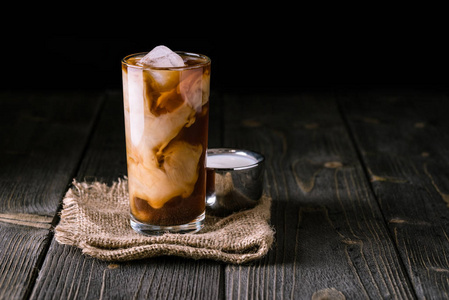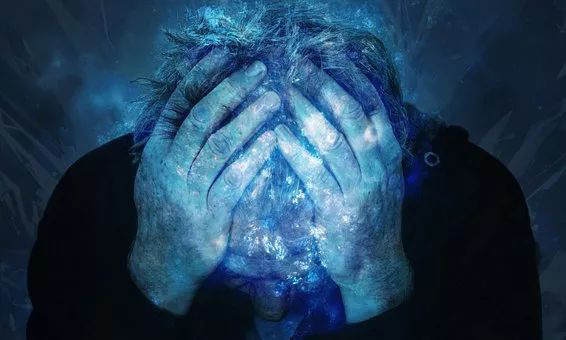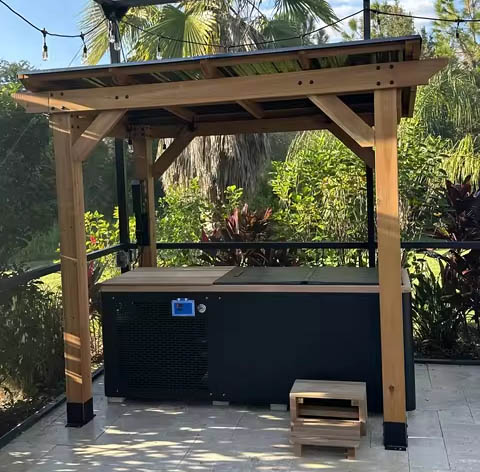Coffee has a long cultural history. In today's society, beyond those who genuinely enjoy it, many people see hot coffee as their go-to morning pick-me-up, the key to jumpstarting their brain. They rely on it to get through a busy day and stay focused. However, while coffee has become a lifestyle habit, knowing only its energizing benefits isn't enough! What if I told you that an ice bath can offer your body and brain the same refreshing effects as coffee, while also providing sustained energy throughout the day? Let's explore why cold water immersion in the morning can offer more benefits than drinking coffee!

What’s The Magic Of Coffee?
When we hear the word 'coffee,' the idea of 'refreshing' often comes to mind. Although its appeal extends beyond this, for many people, coffee is renowned worldwide for its energizing effect. This is mainly due to the caffeine in coffee beans. When we drink coffee on a drowsy morning, caffeine quickly enters the bloodstream and travels directly to the brain, where it inhibits adenosine—a neurotransmitter that promotes sleep. By occupying adenosine receptors, caffeine blocks adenosine's action, allowing neuronal activity to continue, which reduces fatigue and increases alertness.
From a social perspective, coffee culture is now popular around the world, and many people associate it with socializing. Whether it's chatting with friends, business meetings, or personal leisure time, coffee has become a part of daily life for many. Some studies have even shown that consuming coffee in small amounts can reduce the risk of type 2 diabetes, Parkinson's disease, and certain cancers like leukemia, which contributes to its reputation as being beneficial to health.
However, while the initial burst of energy from coffee is highly appealing—it can quickly relieve morning fatigue and enhance cognitive ability—it is short-lived. Once the caffeine begins to wear off, many people experience what is known as a 'caffeine crash.

Caffeine Crash: The Side Effects You Might Not Know
You may be familiar with the refreshing effects of coffee, but perhaps you've never heard of the term "caffeine crash." This term refers to the rebound effect that occurs when we consume large amounts of caffeine. As the initial energizing effect fades, adenosine neurotransmitters resume activity, leading to extreme fatigue, lack of concentration, and even feelings of depression. This sudden shift is known as a "caffeine crash."
Moreover, consuming too much caffeine or drinking coffee later in the day can disrupt your biological clock, making it difficult to fall asleep. This cycle of poor sleep quality can affect your mental state the next day, leading to memory loss and other symptoms.
Additionally, frequent use of caffeine can lead to dependence. Over time, you may find it difficult to function normally without coffee, and if you suddenly stop consuming caffeine, you may experience withdrawal symptoms such as headaches, irritability, and fatigue.

Unlike coffee, cold water soaking provides the body with a completely different kind of energy and is a pure, natural, and effective stimulant. For most people, the idea of a cold water soak in the morning might seem daunting, especially when compared to the comfort of a hot bath. However, the benefits of cold water immersion are both evident and scientifically proven.
When we enter cold water in a sleepy state, the first sensation is the sharp chill, followed by an increase in heart rate and rapid, deep breathing. This reaction triggers a surge of adrenaline in the body, awakening both the body and mind, leaving you feeling energized and clear-headed. This effect can last for several hours without any side effects. Additionally, cold water stimulates the release of endorphins, which elevate mood, making you feel happy and relaxed. Endorphins often work in conjunction with the "happy hormone" dopamine, contributing to feelings of happiness and satisfaction, which is why they’re sometimes called "happiness molecules."
Beyond just waking you up, cold water soaks offer numerous other benefits. You can find more details in my article 《Benefits of Ice Baths: Uncover Ice Bath》
The Difference Between Cold Water Soaking and Coffee
Although both coffee and cold water soaking can refresh the mind, their mechanisms, effects, and ideal usage scenarios are quite different. Here are some key differences:
Mechanism
Coffee: Coffee primarily relies on caffeine to block adenosine receptors in the brain, preventing the sensation of sleepiness. Additionally, caffeine stimulates the central nervous system, increasing the release of dopamine and adrenaline, which helps you feel more awake and focused.
Cold Water Soaking: Cold water immersion triggers the body's stress response by lowering the temperature of the skin and body. This causes blood vessels to constrict, reducing inflammation and muscle soreness, releasing adrenaline, and activating the sympathetic nervous system to boost alertness and energy levels. Upon exiting the cold water, blood rushes back to the limbs, promoting circulation and creating a sense of wakefulness.
Effect
Coffee: The effects of coffee can last for several hours, but they may come with side effects, such as a caffeine crash. Excessive caffeine intake can lead to anxiety, palpitations, or sleep disturbances.
Cold Water Soaking: The stimulation from cold water typically produces an immediate and intense refreshing effect, especially when you’re feeling sleepy or fatigued. It can quickly wake up the body and mind, providing a full-body sense of freshness and rejuvenation that may last for several hours without side effects.
Impact on Health
Coffee: Drinking coffee in moderation can boost the body’s metabolic rate and reduce the risk of certain diseases. However, excessive consumption may cause anxiety, insomnia, and gastrointestinal discomfort.
Cold Water Soaking: It helps reduce inflammation, accelerates muscle recovery, supports cardiovascular health, and enhances the immune system. However, it should be used with caution by individuals with heart conditions.
Applicable Scenarios
Coffee: Best suited for maintaining long-term concentration, such as during work or study. It can be consumed at various times, but drinking it too late in the day may affect sleep.
Cold Water Soaking: More suitable for recovery after exercise, quickly refreshing the body when tired, boosting immunity, or regulating emotions. It is typically used in the morning or after physical activity.
Conclusion
Whether you choose coffee as your daily pick-me-up, remember to consume it in moderation, as excessive intake can lead to discomfort. If you have the time, we recommend starting your day with an ice bath. Not only does it provide a full mental boost, but it also offers long-term benefits for your body. Of course, you can also combine both methods, but be sure to drink coffee in moderation and limit it to the morning to avoid disrupting your sleep at night.





